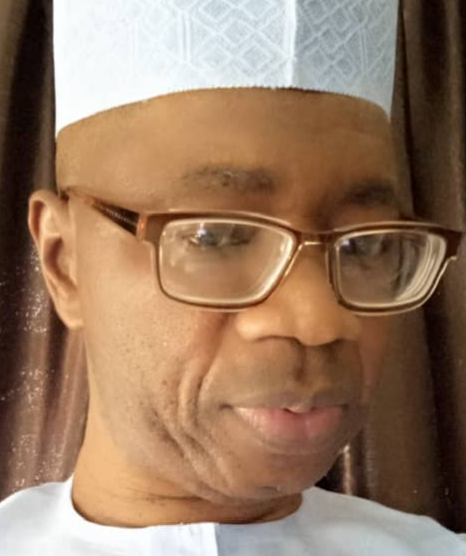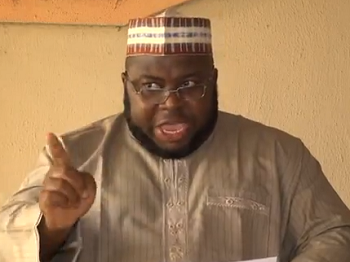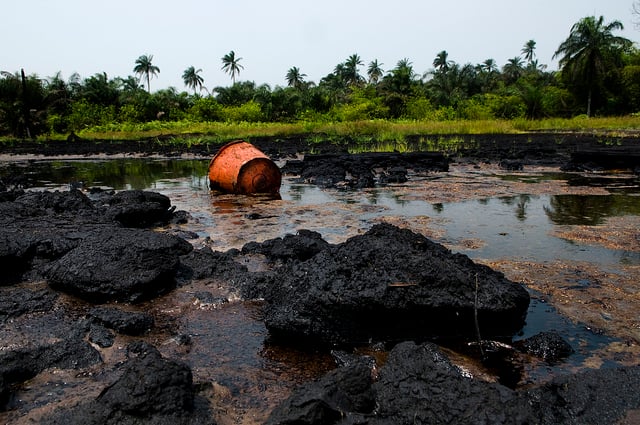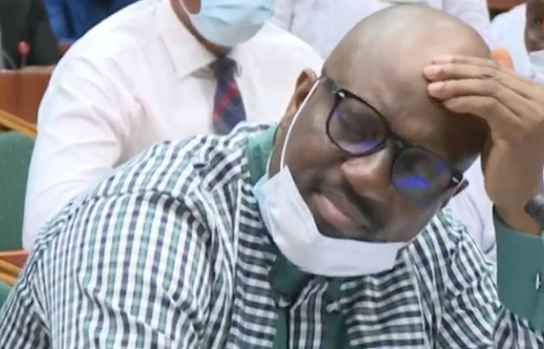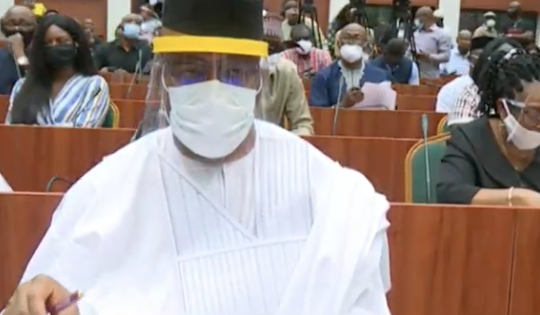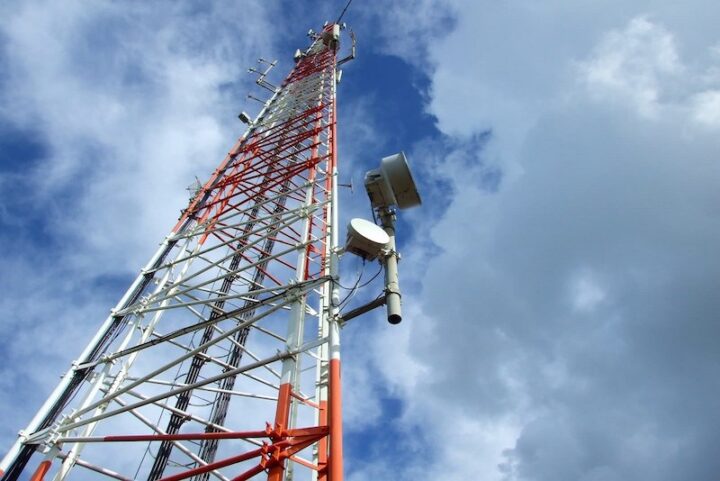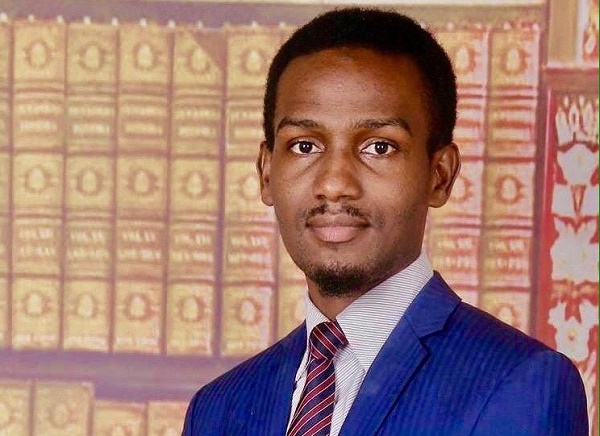These are not the best of times for the Buhari Administration and its image minders. When Nigerians expect firm and decisive steps, what they see or perceive are tentative actions bordering on lack of capacity and inability to rein in disparate interests of gullible and often greedy politicians.
After the various allegations against the interim managers of the Niger Delta Development Commission, NDDC, and the Ministry of Niger Delta Affairs on one hand and the counter-allegations against members of the National Assembly on the other hand, Nigerians who have been fed with absurd tales may have to wait longer than they expect to know the real truth.
Recall that the Prof. Daniel Pondei-led Interim Management Committee, IMC, of NDDC has appeared before Senator Peter Nwaoboshi-led Senate Committee on Niger Delta Affairs on different occasions. The same IMC is having a running battle with the Hon. Olubunmi Tunji-Ojo-led House of Representatives Committee on Niger Delta Affairs, seeking to open the same books already scrutinized by the other chamber of the National Assembly. Why are our lawmakers so wasteful and unserious?
While some Nigerians are already swayed by the emotion of the multi-million naira fraud allegation against the NDDC, most discerning people are asking pertinent questions. What does the law say about the relationship between an agency of government and a legislative committee, which oversights the former? And how does one know the boundary between the truth of a matter and fallacy of it?
Advertisement
It is noteworthy that the word ‘oversight’ is not in the Nigerian Constitution. However, under the doctrine of the separation of powers, legislative oversight of the executive has become a norm. Separation of powers splits the judicial, legislative and executive powers of government into three independent branches in the belief that vesting all these powers in one organ may breed absolute tyranny. In spite of the separation clause, the possibility of abuse is still quite high. Therefore, the power of oversight is one of the checks and balances of this system, to curb corruption, which is vested in the legislative arm of government.
The relevant portions of the 1999 Constitution (as amended) are Sections 88 and 89. Section 88 says each House of the National Assembly has the power to investigate (a) any matter in respect of which it has the power to make laws; and (b) the conduct of any parastatal or official responsible for administering any Act of the National Assembly or in charge of disbursing funds. The section then says that the power to investigate is only exercisable for the purpose of enabling it (i.e. the Senate or the Reps) to (a) make laws on any matter within its legislative competence and correct defects in existing laws; and (b) expose corruption, inefficiency or waste in the execution or administration of laws.
Section 89 says, as it relates to the power to investigate, that lawmakers also have the power to procure evidence, require the evidence to be given on oath, summon anyone to give evidence or produce documents and issue a warrant to compel the attendance of any such witness.
Advertisement
Flowing from the foregoing, does the National Assembly really has as much powers as it often seeks to assert?
The National Assembly had in the past sought to void contracts signed by MDAs for ‘not being favourable to the masses’. Our lawmakers also seem to be under the illusion that they can summon anyone for just about anything but these clauses don’t lend themselves to that belief.
The questions to ask are: Does the National Assembly have the power to investigate actions of the Executive branch? Does it have the power to summon anyone to give evidence or produce documents during such investigations? Can it exercise these powers without limit? The 1999 Constitution (as amended) does not support these myths. When can it exercise these powers? The Constitution says only for the purpose of making new laws and exposing corruption, inefficiency or waste.
There is an added dimension of statutory interpretation which could mean that because of the conjunctive word ‘and’ between the two situations when the powers are permitted to be exercised (i.e. making laws and exposing corruption), the power is in fact only exercisable when both circumstances are present. This is not the case with the current NDDC probes at the National Assembly.
Advertisement
A former Speaker of the House of Reps, Rt. Hon. Ghali Umar Na’abba, while speaking on the legislature’s vast powers over MDAs during a television programme, Focus Nigeria, on July 18, 2017, had submitted that: “The Constitution does not put an end to the powers of the Legislature over Appropriations but there must be rationality in whatever we do.”
That was very apt and the operative word is ‘rationality’ rather than playing to the gallery as we are currently witnessing with the NDDC multiple probes. It appears that the on-going circus show is not meant to expose corruption in the commission. Looks like a means to settle scores with the interim managers of NDDC by lawmakers who are already complicit in the bazaar dressed as contract awards at the commission. This should not be allowed to continue.
At the Red Chamber, lawmakers have bruised their ego in another running battle with the Minister of State for Labour and Employment, Festus Keyamo over the execution of the special public works programme of the Federal Government, which was initiated to cushion the effects of COVID-19 on itinerant workmen. In this case, NASS has also chosen to settle personal scores with Keyamo at the expense of the 774,000 workers to be engaged nationwide. Thanks to the timely and decisive intervention of President Muhammadu Buhari, otherwise the noble idea would have been halted on the altar of greed masqueraded as oversight function.
It is instructive that the acting managing director of NDDC, Prof. Pondei has reiterated that no money is missing or misappropriated from the coffers of the interventionist agency under his watch.
Advertisement
He was quoted in the media: “We have absolute respect for the National Assembly. That is why we appeared before the Senate ad-hoc committee to investigate the same issue. We made our presentations over two days and we wait for the outcome of the investigation. However, the House of Reps committee is being chaired by a member whom the NDDC has severally accused of different things.
“For reasons beyond our control, we were not able to present ourselves but the report that came out of the briefing had already indicted us, our head had been shaved in our absence. The fact given by the CBN and the Accountant-General’s office in the Senate explained that between October, 2019 and May 31, 2020, N81.5bn was spent by the NDDC. Yesterday, according to what was read out by the chairman (Hon. Tunji-Ojo), the same figure was spent in four months by the NDDC. Already it shows that there is a problem, that there is an agreed and conceived effort to portray the management of the NDDC in a bad light and we know we cannot get justice in this manner.”
Advertisement
Interestingly, facts before the legislative committee indicate that the CBN and the office of the Accountant-General of the Federation agreed that the two IMCs spent N81.5bn. The current IMC spent N59.1bn of which N38.6bn was capital expenditure, mainly on road projects. The balance of N20bn covers a wide range of things mostly related to staff salaries and allowances which accumulated for four years, inherited debts to hotels and sundry suppliers.
“We operate a single account with the CBN and the account details are published and it was from those things that investigations in the Senate were based on the account provided by the Central Bank of Nigeria,” Pondei explained.
Advertisement
It is salutary that President Buhari has finally expressed a strong resolve to uproot the problems undermining the performance of the NDDC as a driver of development in the blighted Niger Delta region. At last, beyond the cacophony of voices renting the air, something good may come out of the circus show at the National Assembly.
Advertisement
Views expressed by contributors are strictly personal and not of TheCable.
Add a comment
